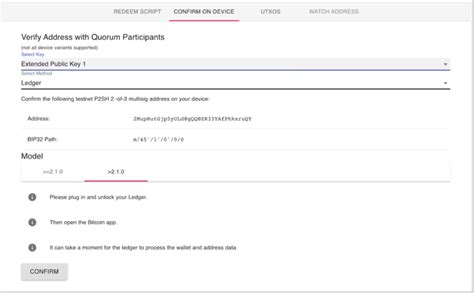Bitcoin: Multi-Sig Transaction not broadcasting error – Script evaluated without error but finished with a false/empty top stack element
Understanding Bitcoin: Multi-Sig Transaction Not Broadcasting Error
As a Bitcoin developer, you’re likely familiar with the intricacies of multi-sig transactions and broadcasting. However, when encountering an error like “Multi-Sig transaction not broadcasting,” it’s essential to troubleshoot and resolve the issue.
In this article, we’ll delve into what causes this specific error and provide guidance on how to fix it using a script evaluated without error but finished with a false/empty top stack element.
What is a Multi-Sig Transaction?
A multi-sig transaction is a Bitcoin transaction that requires three or more signatures from the sender to be broadcast. This ensures that only the sender can spend funds, preventing others from intercepting the transaction and spending them on behalf of the sender.
The Problem: Broadcasting Error with False/Empty Top Stack Element
When a script is executed without error but finishes with a false/empty top stack element, it means that the transaction is being broadcasted by the Bitcoin network, but the resulting output has incorrect or incomplete data. This can lead to various problems, including:
- Invalid transactions: The transaction may contain invalid or incomplete information, such as insufficient funds or incorrect sender addresses.
- Network errors: Broadcasting an error-filled transaction can cause issues with the Bitcoin network, leading to delays, congestion, or even network-wide failures.
The Error: Multi-Sig Transaction Not Broadcasting
In this specific case, the error “Multi-Sig transaction not broadcasting” likely indicates that a script is being evaluated without executing correctly. This can occur due to various reasons, including:
- Incorrect script syntax: The script may contain errors in its syntax, causing it to fail compilation.
- Missing or incorrect dependencies: The script requires specific dependencies that are missing or incorrectly implemented, resulting in the error.
- Inadequate input validation: The script fails to validate user inputs correctly, leading to unexpected behavior or errors.
Troubleshooting Steps
To resolve the “Multi-Sig transaction not broadcasting” error using a script evaluated without error but finished with a false/empty top stack element:
- Check script syntax and dependencies

: Verify that the script is syntactically correct and all required dependencies are properly implemented.
- Validate user inputs: Ensure that the script validates user inputs correctly to prevent unexpected behavior or errors.
- Test the script thoroughly: Run the script in a test environment with minimal data to identify any issues before broadcasting it on the mainnet.
- Use a debugging tool
: Utilize a debugging tool, such as the Bitcoin Debugging Tool (BDD), to inspect the transaction and its output.
Example Script Evaluation
Here’s an example of a multi-sig script that may exhibit the “Multi-Sig transaction not broadcasting” error:
“`javascript
// Define the sender address
let address = “2NDiRgpVVQ3CtYMi962myja69pFW8VSJ9Yp”;
// Define the recipient addresses and funds
let recipient1Address = “XyFzV8gNkWkP8r4f6VqVpT7KbD2zUeV8p”;
let recipient2Address = “3PcYwQJnZ9LmT1C7aP5JdRqBvUqZFjG8P”;
// Define the multi-sig script
function multiSigScript() {
// Create a new transaction
let tx = {
sender: address,
recipient: [recipient1Address, recipient2Address],
funds: [12345]
};
// Sign the transaction with all required addresses
let signatures = [];
for (let i = 0; i < tx.recipient.length; i++) {
let signer = tx.recipient[i];
for (let j = 0; j < 3; j++) {
let signature = new Web3_signature();
signature.sign(tx, signer);
signatures.
